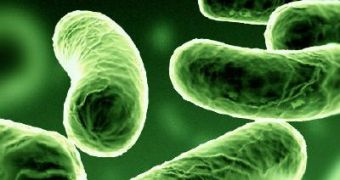A team of researchers now claim that losing weight without having to undergo gastric bypass surgery is very much possible, provided that the individual who wishes to shed some pounds agrees to have new bacteria transplanted into their guts.
The scientists base their claims on several experiments carried out on laboratory mice. More precisely, it appears that the rodents that were made to ingest a new set of gut bacteria dropped about 5% of their body weight, despite the fact that the animals were not made to go on a diet.
Nature informs us that the bacteria transplanted in these mice were collected from mice that used to be overweight and which succeeded in losing about 30% of their body weight with the help of bypass surgery.
“Transfer of the gut microbiota from RYGB-treated mice to nonoperated, germ-free mice resulted in weight loss and decreased fat mass in the recipient animals,” the researchers write in their study.
As the scientists explain, the findings of these experiments add support to the theory that bypass surgeries cause weight loss not just because one's stomach is greatly reduced, but also because they trigger changes in the bacterial content of one's guts.
“These findings provide the first empirical support for the claim that changes in the gut microbiota contribute to reduced host weight and adiposity after RYGB surgery,” the study reads.
According to one study published just a few days ago, the microorganism inside one person's body can influence how much that person weighs, regardless of what and how much they eat.
Therefore, it is plausible that weight loss can by triggered by transplanting new gut bacteria.
However, further research on the matter at hand is needed. This is because, as long as the environmental conditions in the gut remain the same, the new bacteria are bound to sooner or later be replaced by the old ones.
“You can’t just take a pill of the right bacteria and have them stick around,” researcher Randy Seeley says.
The findings of these experiments are detailed in the journal Science Translational Medicine.

 14 DAY TRIAL //
14 DAY TRIAL //